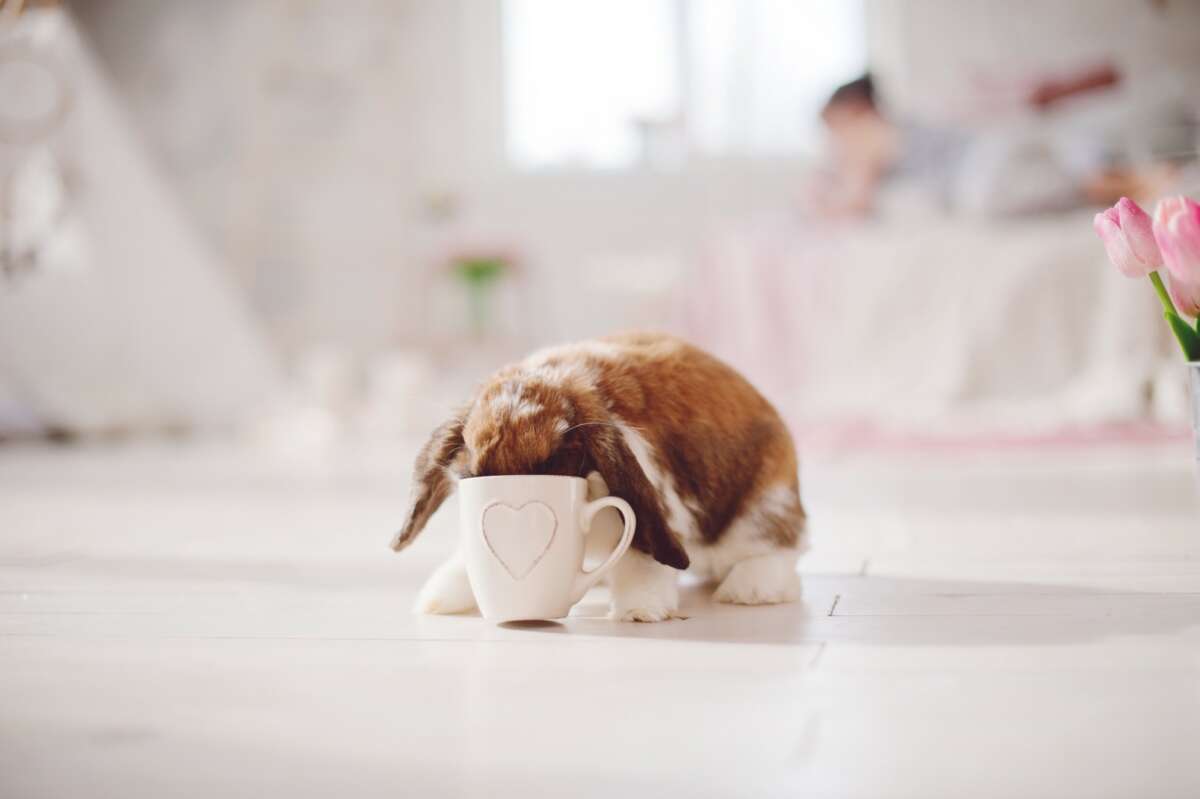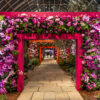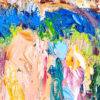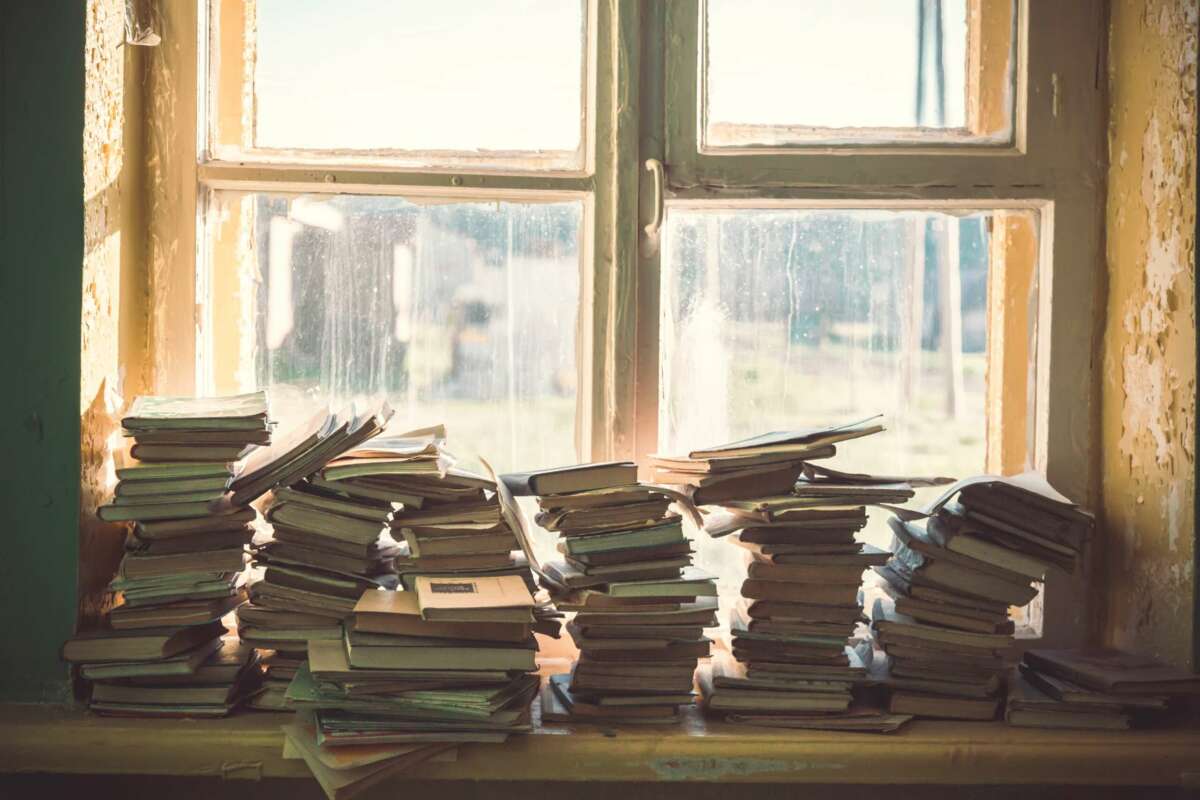The Luxury Photo Journey is an occasional series here at Dandelion Chandelier. Sometimes we find ourselves in a place so stunningly beautiful that words fail us. In those instances, we’ll let the images do most of the talking.
We were recently in London and decided to make a long-delayed first visit to the magnificent V&A (Victoria & Albert) Museum of art and design in London. Like so many of life’s true luxuries, this one is free, and you could spend days here if you were inclined to see everything on display. The intention of the collection is to allow visitors to “journey through 5000 years of human creativity.” Sounds great — we’re in!
We had only a couple of hours, so we booked an expert tour guide from the luxury British experience company Noteworthy to show us the highlights of the museum. We thought that would give us the lay of the land so that we could return on our own and continue our exploration.
Here’s what of we saw on our guided tour of the “best of” what the museum has to offer in its permanent displays.
Ironically, we’re greeted at the entrance with the work of an American: a hanging sculpture in green, blue and yellow glass crafted by sculptor Dale Chihuly. It holds pride of place in the dramatic main rotunda, surrounded by soaring arches on all sides. We felt right at home!
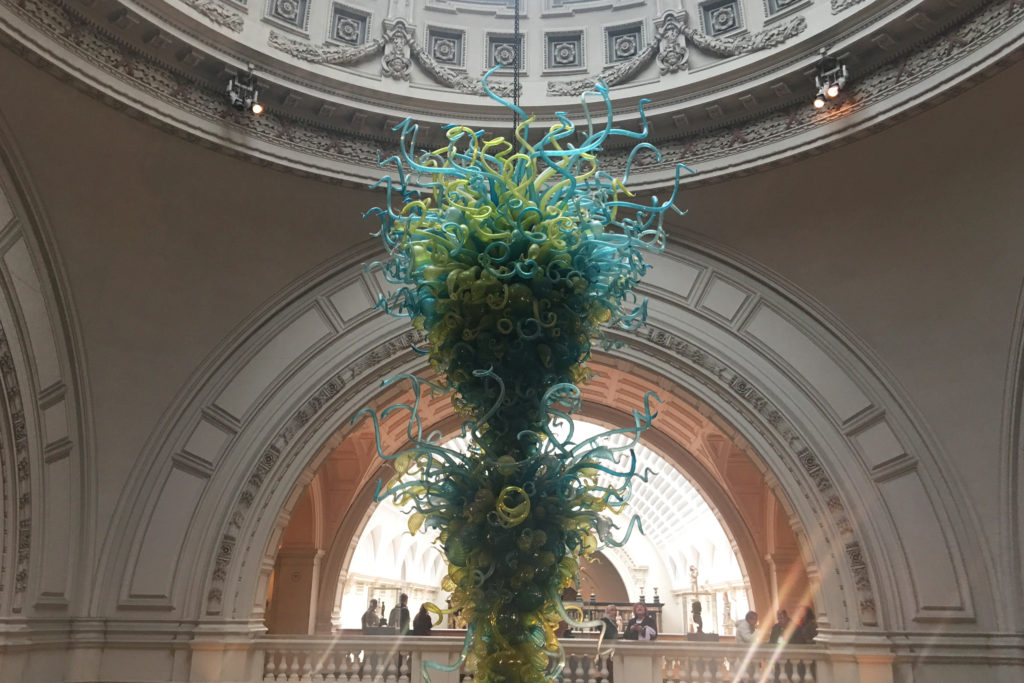
Photo Credit: Dandelion Chandelier
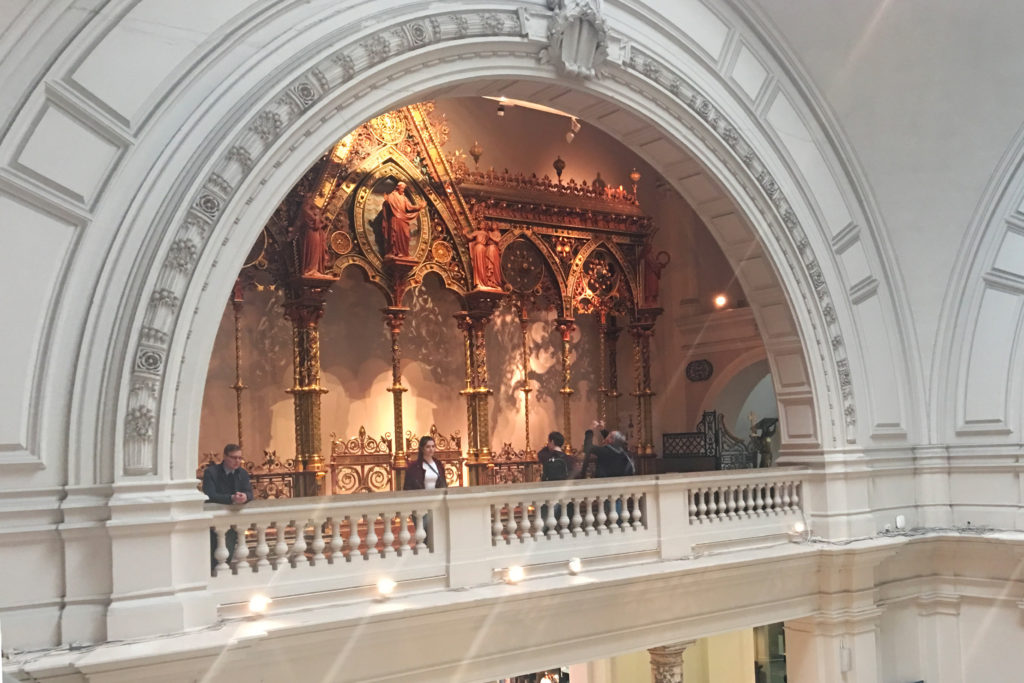
Photo Credit: Dandelion Chandelier
But after that nod to the former colonies, we’re quickly plunged into British history, as told through art and design in chronological order. We start in 1520, examining a Writing Box of the type used by Henry VIII. From there, it’s on to the Great Bed of Ware from 1590 — it was used in several inns, and was famous for its size and its ornate carved oak and panels of inlay with fantastical creatures. There are bookcases from 1695, and a model of the ornate State Coach from 1760 used by King George III and the Royal Family (which was built to demonstrate Britain’s international power).
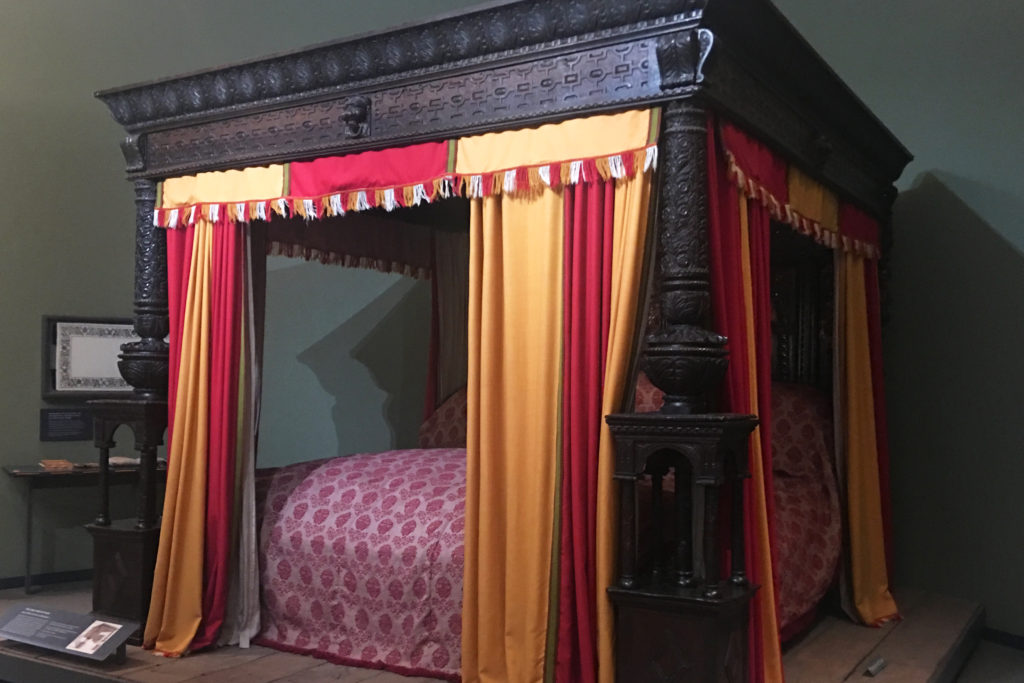
The Great Bed of Ware Photo Credit: Dandelion Chandelier
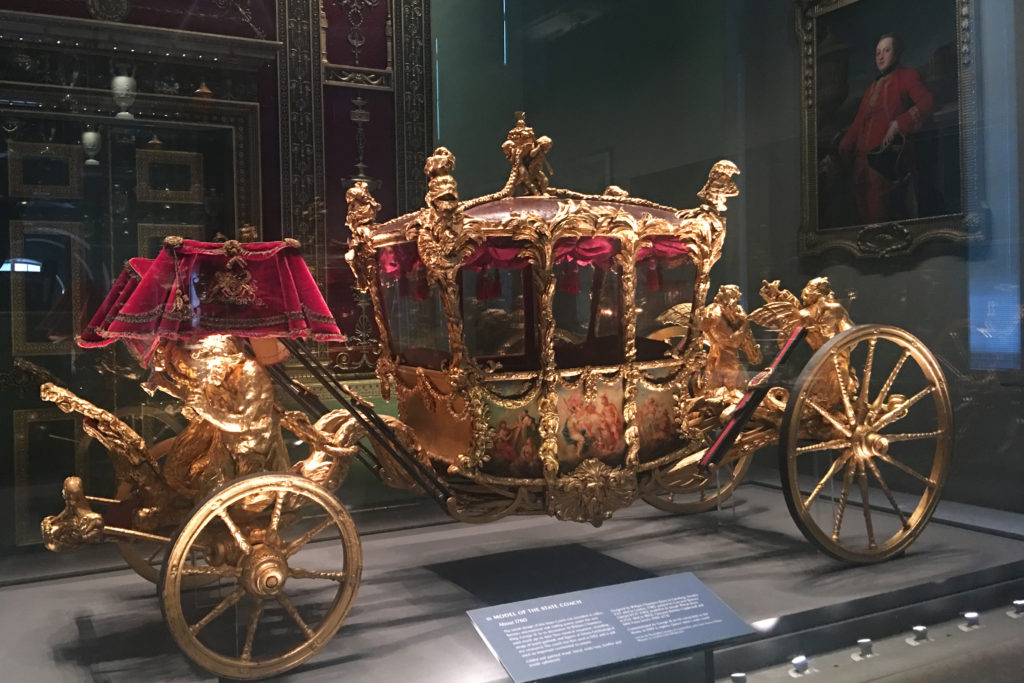
The State Coach of King George III Photo Credit: Dandelion Chandelier
Homages to music, composers and performers are also a consistent theme. The sculpture of classical composer George Fredrick Handel, dated 1740, honors the German Baroque composer who spent the bulk of his career in London, becoming well-known for his operas, oratorios, anthems, and organ concertos. He later became a British citizen.
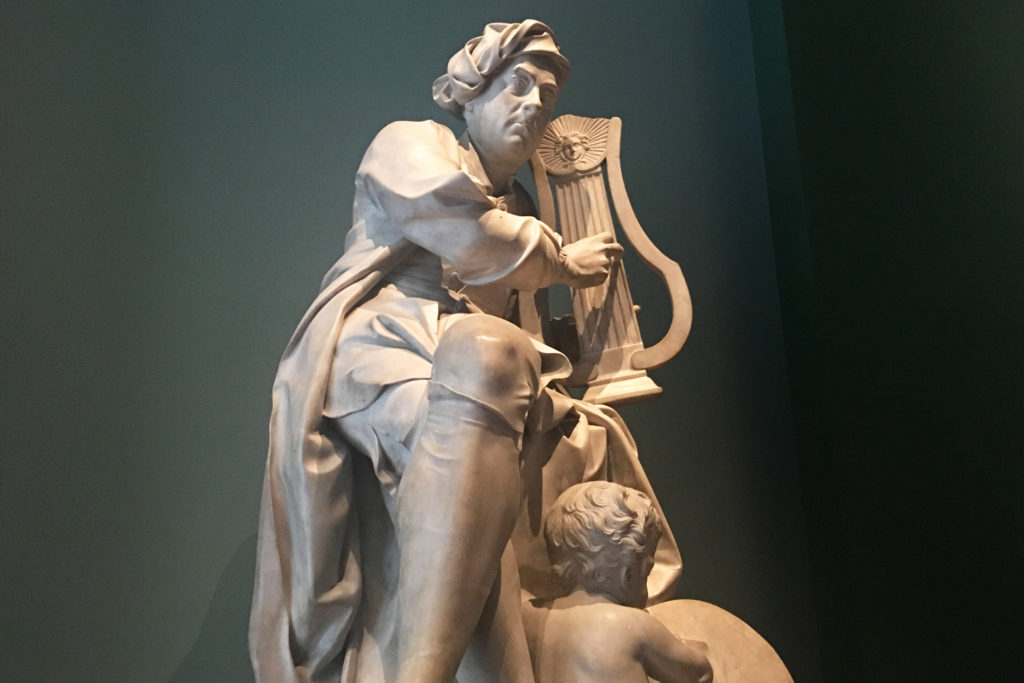
George Frederick Handel Photo Credit: Dandelion Chandelier
A sculpture of The Three Graces was originally made for the Sculpture Gallery at Woburn Abbey, Bedfordshire, and housed in a specially designed Temple of the Graces. It was commissioned from Antonio Canova by John Russel, 6th Duke of Bedford, who visited the sculptor in his studio in Rome in 1814.
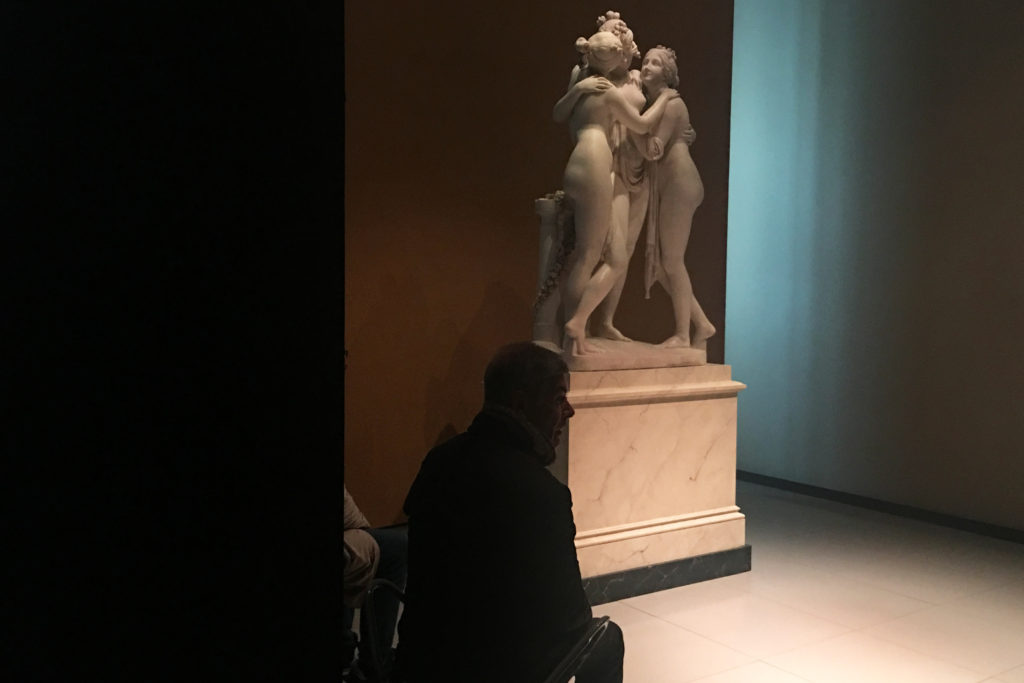
The Three Graces by Antonio Canova Rome, 1814-1817, carved marble. Photo Credit: Dandelion Chandelier
There are striking casts of famous works from around the globe, including Michelangelo’s David. The halls are filled with models of monuments, like the Albert Memorial and the Wellington Monument in St. Paul’s Cathedral (so if you can’t visit them, you can see them here). Our favorites were the models of part of the bronze Wellington Monument created in 1857-66 by Alfred Stevens showing Valour crushing Cowardice, and Truth silencing Falsehood.
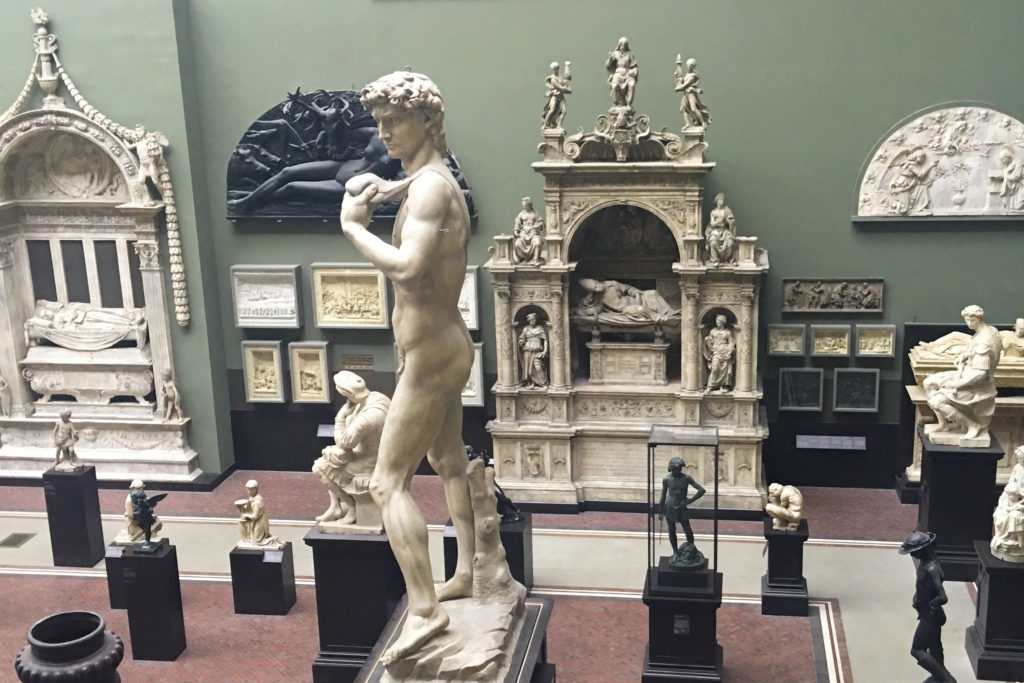
Photo Credit: Dandelion Chandelier
There are stunning and whimsical embroidered tapestries throughout, some showing scenes of everyday life among the aristocrats at various stages of English history (the one pictured below is from Herefordshire in about 1710, and depicts a formal garden).
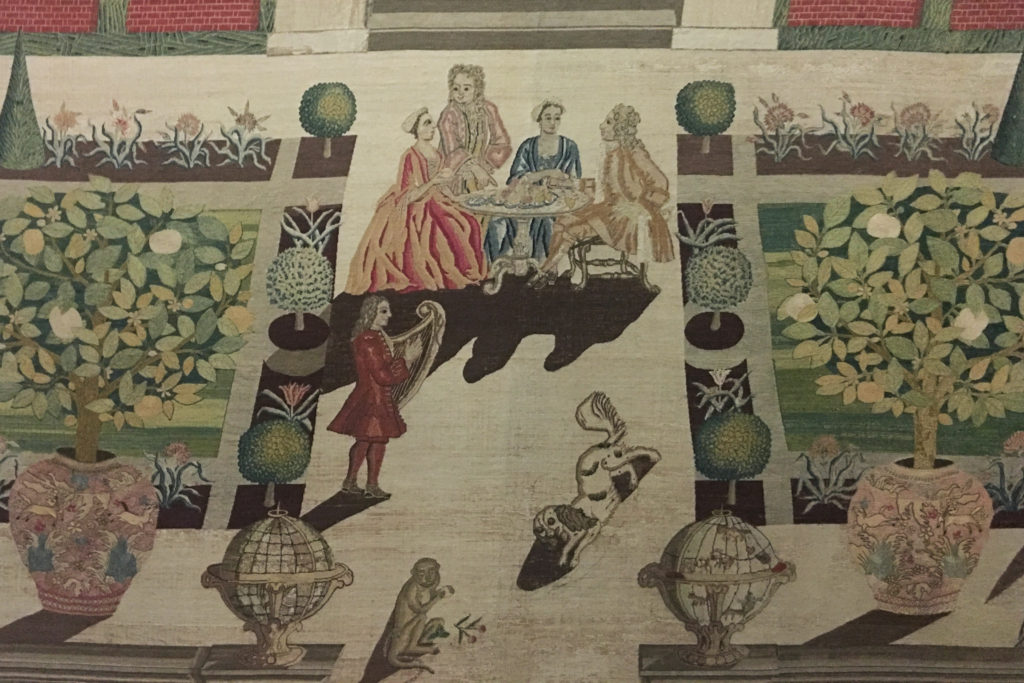
Photo Credit: Dandelion Chandelier
We loved this gorgeous plaster ceiling cast, representative of what you’d find in a grand country estate outside of London.
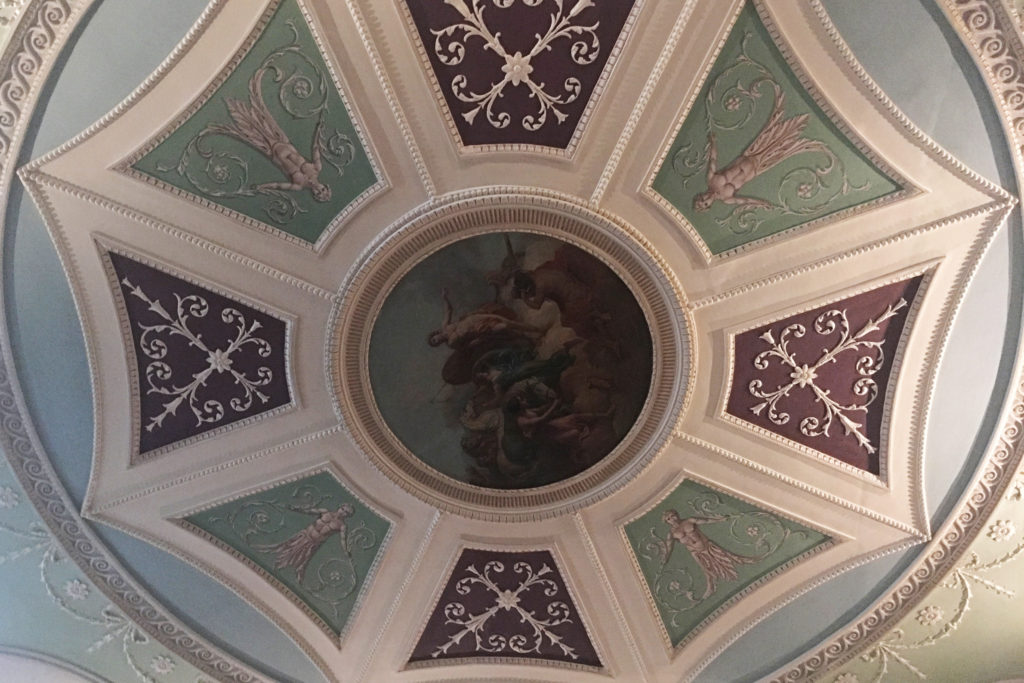
Photo Credit: Dandelion Chandelier
Music is celebrated with modern sculpture and vintage instruments. Cornelia Parker’s stunning 2001 sculpture “Breathless” is made of silver-plated brass wind instruments, flattened and suspended on stainless steel wire.
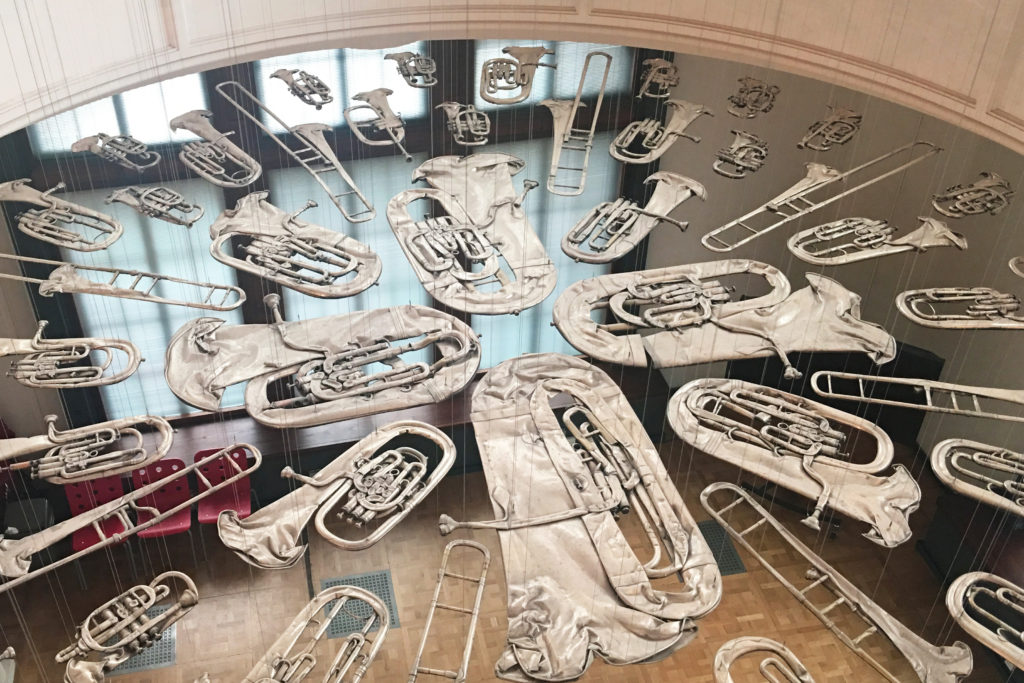
Breathless by Cornelia Parker, 2001. Photo Credit: Dandelion Chandelier
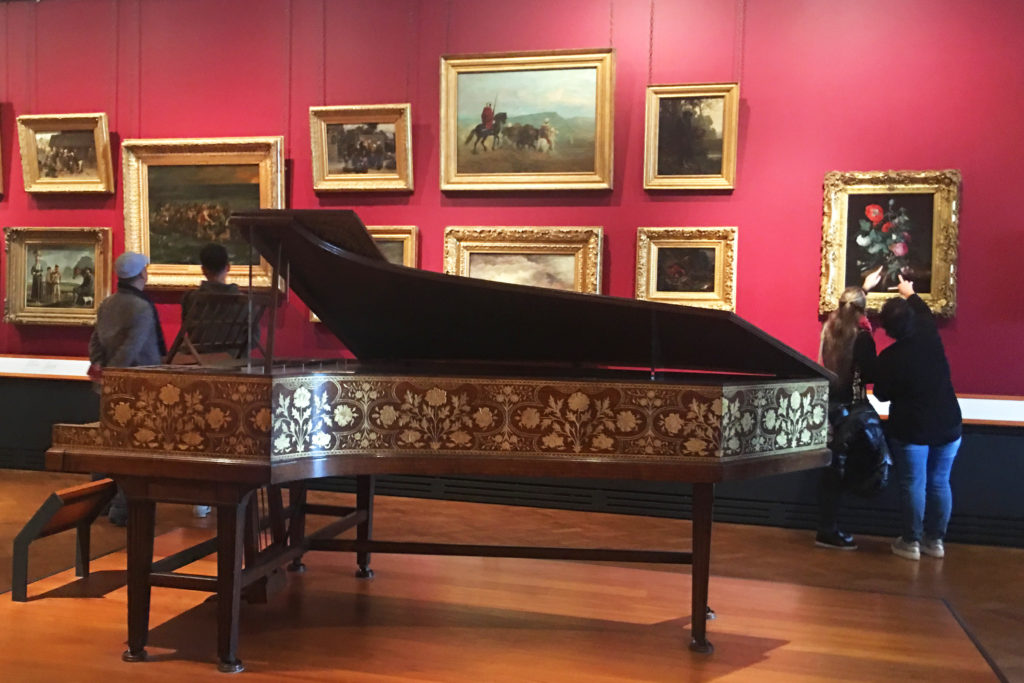
Photo Credit: Dandelion Chandelier
We found artists sketching, people observing and in deep contemplation, and all around us stunning works of great beauty. Paintings by John Constable and Joseph Mallord William Turner. Original print fabrics from famed interior decorator William Morris. A gorgeous library. A replica of the glass house from the Great Exhibition of 1851 in Hyde Park – the first “world’s fair” – officially opened that year on May 1 by Queen Victoria, who later wrote “it was the happiest, proudest day of my life.” (The profits from the Exhibition were used to found the Victoria & Albert Museum).
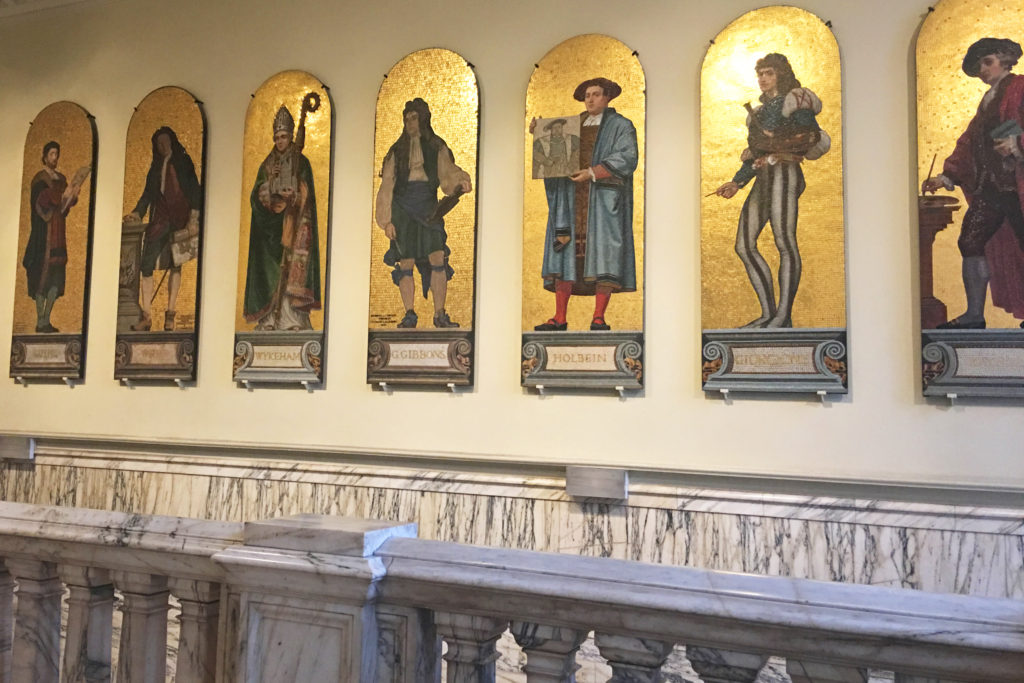
Photo Credit: Dandelion Chandelier
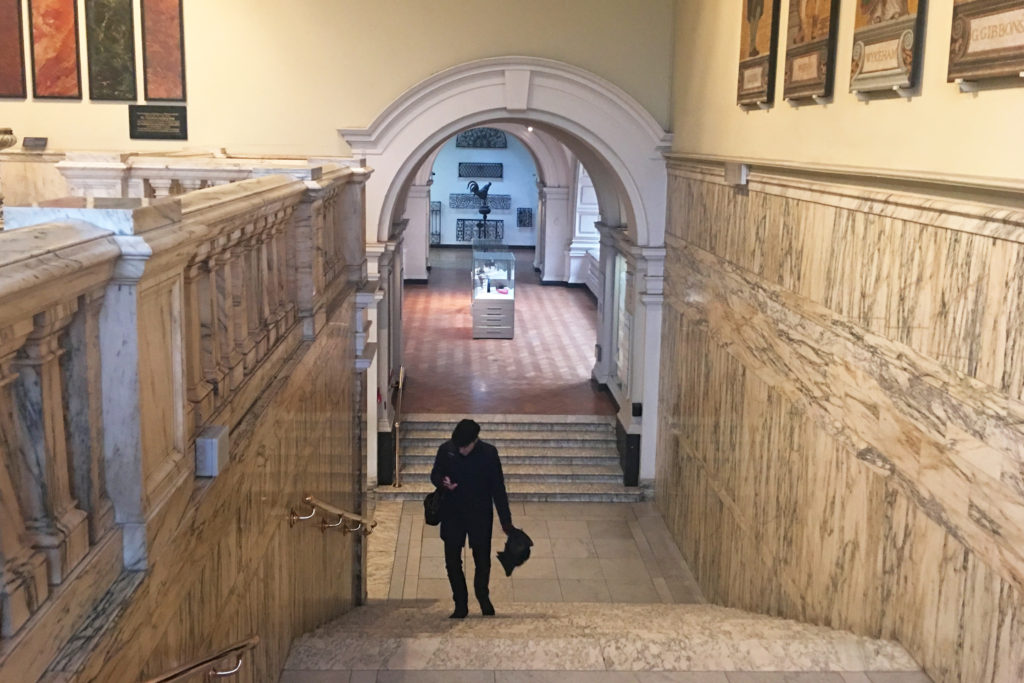
Photo Credit: Dandelion Chandelier
Of course, we refused to leave without looking into the fashion gallery. There’s also a gallery filled with stunning Royal jewels, but no photographs are allowed there (so you’ll just have to take our word for it — they’re beautiful, and we really want our own tiara now).
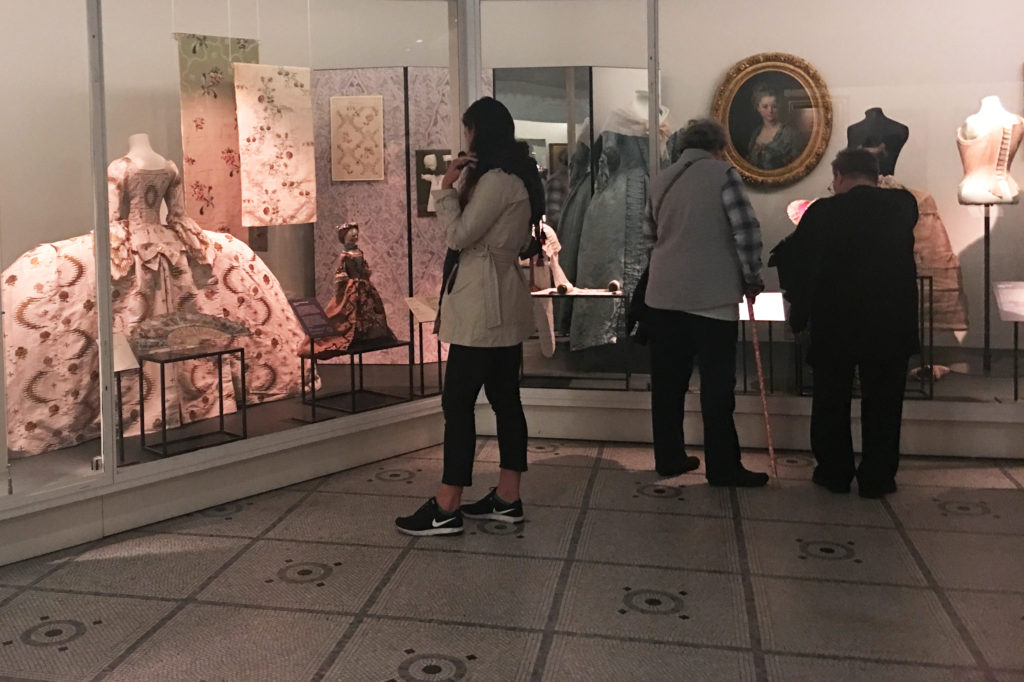
Photo Credit: Dandelion Chandelier
As with any world-class museum, there are so many other vignettes, displays and images to show that it’s impossible to share everything we saw, even in our brief visit. Consider this a sampler of what awaits you, and don’t wait as long as we did to pay this splendid museum a visit. You’ll definitely find something there that speaks to you – and inspires you.

